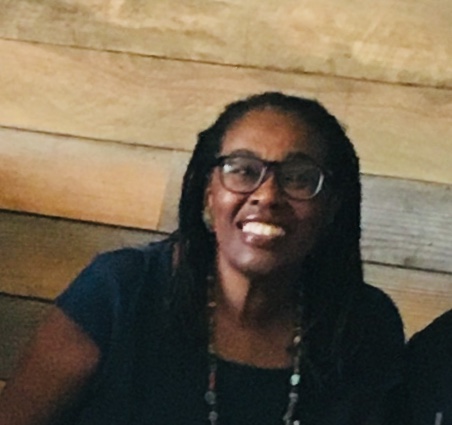Cheryl Scott, MD, MPH

Cheryl Scott, MD, MPH graduated from Boston University Chobanian & Avedisian School of Medicine in 1982, just two years after the first cases of HIV/AIDS defined a pandemic whose impact is greater than smallpox.Both the U.S. post-civil rights and the anti-apartheid movements fueled Dr. Scott’s passion for public health and international service, and helped her understand how race, education, socioeconomics, social pressures and healthy communities are critically interdependent. Her wide-ranging interests led to early work examining reproductive outcomes of women affected by the Three Mile Island meltdown, managing complications among HIV-infected patients enrolled in early clinical trials in Roosevelt Island NYC, and providing care to homeless shelter residents in Harlem. Shortly after she began an assignment with the National Health Service Corps in St. Croix, Hurricane Hugo devastated the territory. While providing primary care services and helping USVI residents in post-disaster recovery during 1989-1992, Dr. Scott’s commitment to a career in public health was finalized. She joined CDC’s Epidemic Intelligence Service and the US Public Health Service Commissioned Corps (USPHS) in 1993. During her twenty-years as a USPHS Medical Officer, Dr. Scott helped shape maternal and child health state and national policies, contributed to building a global prevention, treatment and care infrastructure for HIV/AIDS, provided leadership to interrupt transmission of multidrug-resistant tuberculosis, and responded to multiple disasters throughout the world.
Dr. Scott’s international work has been focused on strengthening health systems and supporting reform in Côte d’Ivoire, India, Kenya, Lesotho, Ecuador, Jamaica, Haiti and Tanzania. She has strategized on prevention for uterine rupture-associated infant and maternal mortality in rural Côte d’Ivoire, examined delayed puberty in malnourished schoolgirls in rural Kenya, and delivered in-home care services to villagers residing near the All-India Institute of Medical Sciences in New Delhi. Her relief work has supported communities impacted by conflict and disasters including providing post-earthquake technical assistance to restore Haiti’s tuberculosis program, responding to suspected anthrax contamination in Tanzania and delivering clinical services to newly-displaced Kosovar and African-Colombian refugees. From 1993-95 Dr. Scott served as a CDC member of the UN High Commission on Refugees. In the early 80s she joined Brigada Venceremos, a US organization that supported the normalization of US-Cuba relations, where she had the opportunity to visit Cuba’s polyclinics and an HIV sanitarium to learn about Cuba’s HIV strategy. These visits were a complement to Cuba’s priority of medical diplomacy, whereby Cuban physicians also served alongside Dr. Scott and other nation’s partners to combat Africa’s AIDS epidemic.
Dr. Scott was seconded to the US Department of State in 2000-2005 as the inaugural CDC Director for the United Republic of Tanzania. With an HIV prevalence of 9% in 2000 and no AIDS treatment in a country of 43 million residents, the Tanzanian government and partners sought to develop a coordinated, sustainable approach aimed at reducing both disease and poverty. Dr. Scott established a CDC office and $34M HIV/AIDS prevention, care and treatment program, which laid a cornerstone for the rapid scale-up of national services on Tanzania’s mainland and islands of Zanzibar. She collaborated with multilateral and Tanzania’s European donor partners on founding sixteen national HIV treatment sites, organized the technical assistance of several US university antiretroviral treatment partners, and played a critical role in negotiating for the use of FDA-approved second-line antiretroviral drugs for treatment sites in 2004. She served on the US Ambassador’s Country Team and her program’s HIV interventions rounded out other US partners’ economic, human trafficking and peacekeeping strategies. Dr. Scott’s collaborations resulted in Tanzania initiating their first no-cost national antiretroviral therapy program, which provided AIDS treatment and monitoring to more than 10,000 Tanzanians by 2005.
From 2005-2010 Dr. Scott joined the California Department of Public Health Multidrug-Resistant Tuberculosis Service (MDR TB), where she provided leadership for prevention, detection, treatment and management of MDR TB cases throughout the State of California, whose prevalence of deadly MDR TB was the highest in the nation. Dr. Scott retired at the rank of CAPT from USPHS in 2010. She most recently joined the South Carolina Department of Health and Environmental Control as a Medical Consultant working in areas of women’s health, family planning and HIV/AIDS. She continues to participate in efforts that support her passions of education, history, health equity and civil/human rights.
Dr. Scott grew up in Oakland and Berkeley, Calif. She graduated from the University of California at Santa Cruz, Boston University Chobanian & Avedisian School of Medicine and Johns Hopkins University School of Hygiene and Public Health. She completed residencies in internal and preventive medicine. She most enjoys spending time with her husband, Dr. Stephen Robinson, and their 23y/o daughter, Ajayi Scott-Robinson, a first-year medical student at Rutgers Robert Wood Johnson Medical School.
.